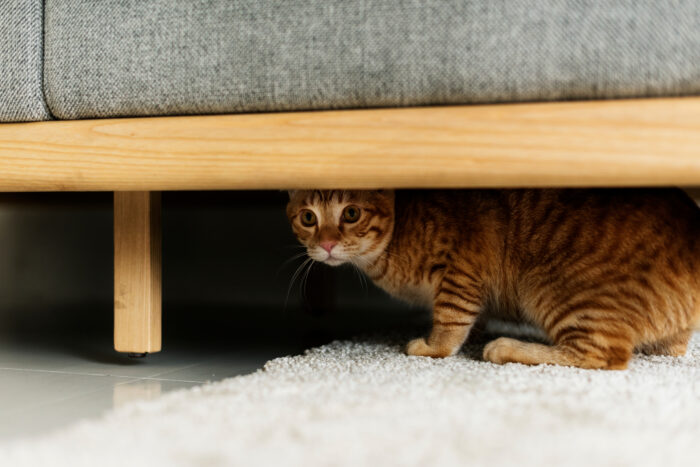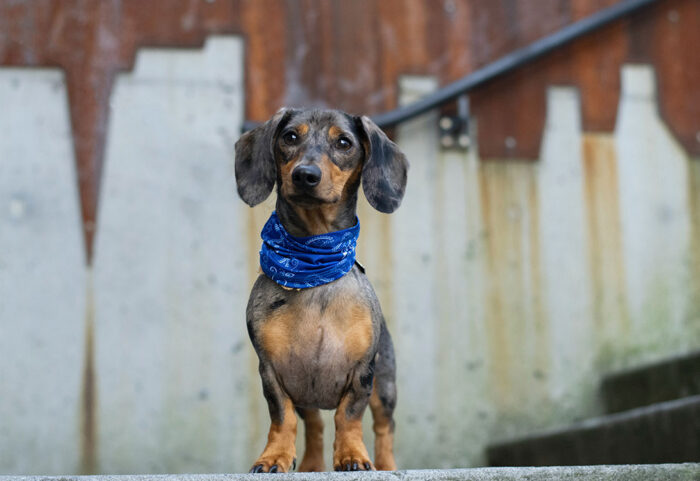My Dog Snores…Is That Okay?
ZZZZzzzzzzzzzzzzzzzzzzzzzzz Does your dog snore? If so, you’ve probably experienced a range of emotions: frustration, worry, extreme exhaustion… In many cases, snoring is natural. In some, it’s not. Let’s talk about whether or not it’s okay that your dog snores.
Why Dogs Snore
Snoring in dogs is caused by the same things that cause snoring in every other mammal. Snoring happens when airflow is restricted in the nasal passageways or the throat. As the air makes its way through the nose and mouth it faces resistance which causes the tissues to vibrate. This is what creates that distinctive snoring sound. Some dogs are far more likely to snore than others. Here are the most common reasons why dogs snore:
- Being brachycephalic, meaning having a short snout
- Position during sleeping
- Environmental allergies
- Excess weight
- Underlying medical condition
Snoring Caused by Medical Issues
There are many medical conditions, some serious, some not, that can lead to snoring in dogs. Snoring is one of the primary symptoms of hyperthyroidism. An abscessed tooth or growth can cause snoring as air is restricted when leaving your dog’s body. Sleep apnea can cause snoring, and can actually be very dangerous. One of the fastest-growing medical causes of snoring in dogs is obesity. Excess weight can put a lot of pressure on your dog’s respiratory system and make it more difficult for him to breathe (both when awake and when sleeping.) Many of the medical conditions that lead to snoring can easily be treated by a veterinarian. In the case of hyperthyroidism, for example, a once-a-day pill can immediately regulate your dog’s metabolism. If your dog’s snoring is brought on by allergies, medication can help, as can ridding his environment of whatever dust, dander, or allergen that’s causing the trouble. In situations where an underlying medical issue to blame, snoring is only a symptom. It’s important to treat the problem itself to keep your dog healthy overall.
When is Snoring Something to Worry About?
Brachycephalic Dogs If you have a brachycephalic dog, you should probably expect regular snoring. This category includes all “flat-faced” dogs (pugs, bulldogs, Shih Tzus, Lhasa Apsos, Chihuahuas, Chow Chows, Pekingese, and Bull Mastiffs.) Snoring is common among these breeds because their short snouts mean air has less room to travel through their airways which makes friction – and the resulting vibrations – more likely. Unless your brachycephalic dog is showing other signs of illness or discomfort, his snoring is probably normal. Talk to your veterinarian about it at your next appointment just to be sure (record a video to show her!) Know that the same smooshy face that makes your dog adorable can also lead to a higher risk of breathing issues down the road.
Non-Brachycephalic Dogs If your dog is not brachycephalic, it’s safe to assume his snoring is negatively impacting his sleep quality. Snoring can keep your dog from resting as deeply as he would otherwise, and it may cause him to wake himself up quite a bit. Any snoring that comes on suddenly definitely warrants a call to the vet. Talk to your vet about what your dog’s snoring means. It may be that he only snores when he sleeps in a particular position; your vet might advise you to gently move him if he falls asleep this way. She could also recommend running a few simple tests to make sure there aren’t underlying medical issues to blame for the snoring, particularly if it’s a new phenomenon.
Pup not spayed or neutered yet? Plan for their long-term health with stem cell banking.


